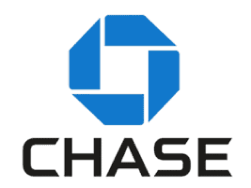We may earn an affiliate commission from partner links on the Entrepreneur Guide. These do not affect our editors’ opinions.
Having a bank account is essential for functioning properly in the modern world. In 2019, the U.S. had 124.2 million “banked” households (94.5 percent). In each of these households, at least one individual had an active checking or savings account. The remaining 7.1 million “unbanked” homes marked the lowest rate since records started being kept. In the most recent data, from 2021, the number of unbanked households in the U.S. had risen to over 6%, accounting for 14.1 million Americans.
The use of bank accounts is becoming more important each year as digital financial transactions have normalized. Roughly two-thirds of adults around the world routinely make or receive digital payments. The percentage in developing countries rose from 35 percent in 2014 to 57 percent in 2021. Cash is still the most common payment method worldwide, but it’s becoming less dominant as technology evolves.
Having a bank account is so common that it’s even possible for minors and newborn babies to have one. They’ll need a little help from a parent or guardian since you must be 18 years old to open a personal bank account. However, as long as you have a Social Security number, it’s possible to open up a bank account in your name.
What is a business bank account?
A business bank account is a bank account that’s exclusively used for business transactions. Its primary purpose is to accept payments from new customers and pay employees and vendors. There aren’t many significant differences between a business bank account and a personal one. The money comes in and out of the account based on the permissions granted by the authorized owner.
It’s common for many small-business owners to run their businesses using their personal bank accounts. However, that can be quite a headache come tax time, challenging to manage appropriately, and isn’t professional. A business bank account is a general requirement if you ever intend to take out a business loan. Ideally, you should draw a firm line between the money involved with your business and your personal life.
Before getting into which bank accounts or credit unions offer the best bonuses, you should know what you’ll need to open one. Everyone in leadership positions must be present for account opening, including owners, partners, and essential executives. You’ll also need to provide a taxpayer identification number for your business, two forms of personal identification, and various business documents based on your business structure.
Which banks offer the best bonuses for business accounts in 2023?
The first thing to remember is that no one ever got rich because of bank account bonuses. If you’re looking to make some serious money, you will need to look elsewhere. However, you might as well seek out the most beneficial account promotions for your U.S. bank account since you have to have one.
Here is a list of the four best bonuses currently being offered for business accounts:
Cash in on easy checking reward program
Opening an official business bank account is one of the first steps you need to take after incorporating your business. The rewards programs for opening a new business checking account are far from lucrative. However, it’s relatively simple to meet the requirements for most of them, and the bonuses are decent. A few hundred dollars isn’t enough to retire early, but it’s free money for using a checking account like you usually would. It would be a mistake not to take advantage of free cash.
If you’re interested in more cutting-edge business content, check out our books and webinars at Entrepreneur.com.
Information provided on Entrepreneur Guide is for educational purposes only. Your financial situation is unique and the products and services we review may not be right for your circumstances. We do not offer financial advice, advisory or brokerage services, we do not recommend or advise individuals to buy or sell particular stocks or securities. Performance information may have changed since the time of publication. Past performance is not indicative of future results




